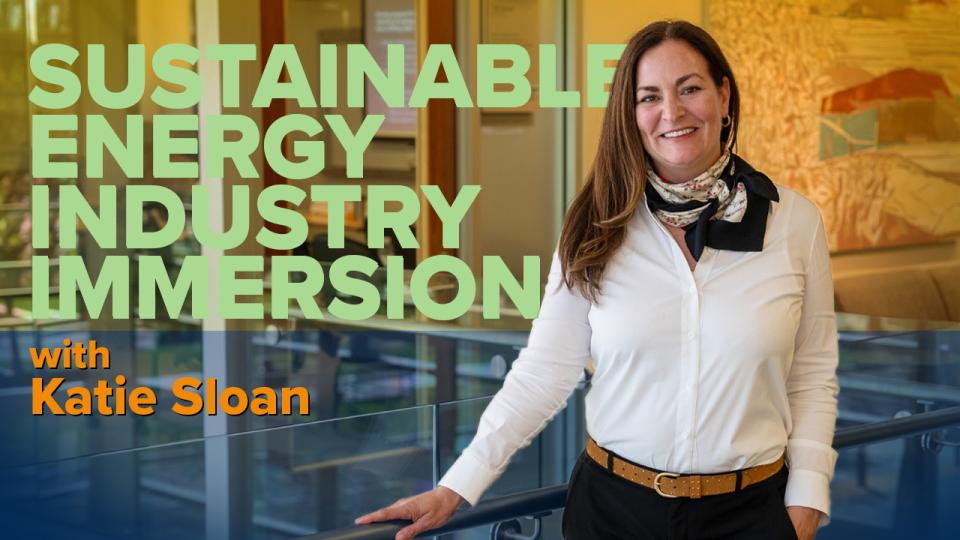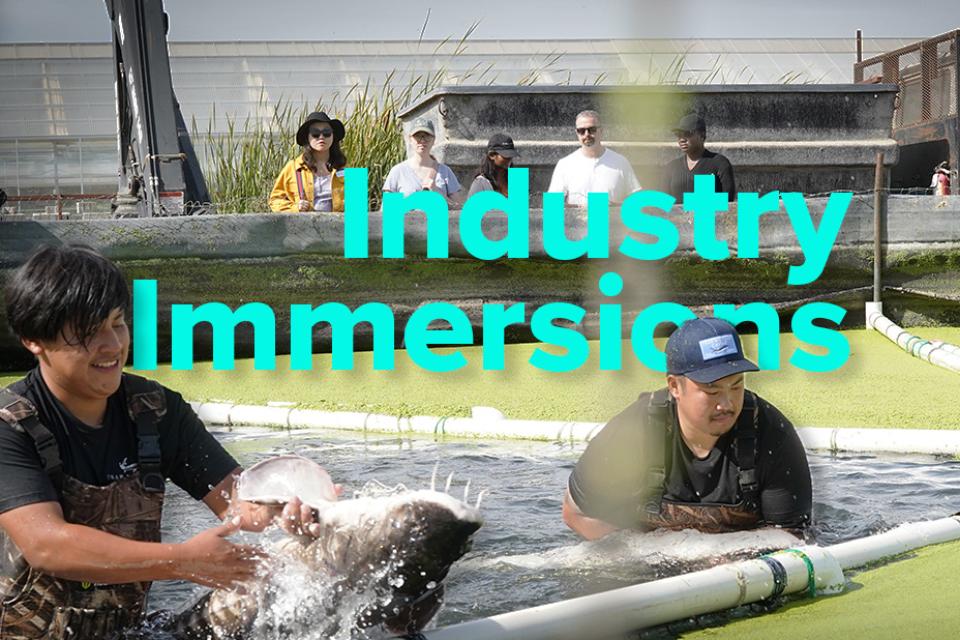UC Davis MBA Sustainable Energy Industry Immersion - Executive Guest Speaker Video
Live case studies presented by Katie Sloan, Southern California Edison

Our Sustainable Energy Industry Immersion explores the latest trends and challenges shaping an industry at the forefront of global development, environmental conservation, national security and financial markets.
Each week in the quarter-long Immersion course, interdisciplinary teams of UC Davis MBA and graduate energy group students develop solutions to management challenges posed by leading executives.
Katie Sloan, vice president of customer programs and services at Southern California, has presented several live cases studies to students over the past several years. She also serves on the UC Davis Energy Efficiency Institute's Board of Advisors.
The utility is investing over $700 million in capital over the next five years toward the nation’s largest transportation electrification program.
Most recently, Sloan challenged student teams to advise on how to move forward on a strategy to install tens of thousands of energy-saving heat pumps and smart panel upgrades as part of building electrification to cut greenhouse gases.
“Students are having real-world companies with problems that they are facing day in and day out, and they’re able to see the things that companies and industry are trying to achieve and how they can bring real-world solutions,” said Sloan, who was off to the White House to advise on EV charging policy.
Video Transcript
Katie Sloan
I have been so lucky to have a really, really great career at Southern California Edison.
Right now with our customer programs and services team, I lead energy efficiency, demand response and all electrification programs, including buildings and transportation. One of the highlights has been building up our e-mobility team.
We have the largest transportation-electrification programs in the country with over $700 million of capital that we're deploying over five years. We're electrifying school buses, trucks, port equipment, and passenger vehicles, really not only for sustainability and greenhouse gas reduction, but to really have better air quality in Southern California.
So I've had the opportunity to do three case studies over the years with UC Davis, and this year I'm really focusing on building electrification.
For us, that's putting in electric space and water heating at home and some commercial businesses. We had what we thought was a really great proposal to put in 250,000 heat pumps and 60,000 panel upgrades and smart panels. We proposed that to our regulator, the California Public Utilities Commission, back in December of 2021, and it was completely denied earlier this year in January.
So what I set out for the students and the graduate students is to say, what should our strategy be here going forward? What did all of the stakeholders say and what should we be doing with building electrification? Because we know that it's really important for California to meet its greenhouse gas reduction targets.
What I think is really unique about this opportunity for the students is that they are having real-world companies with problems that they're facing day in and day out, and they're able to see what are the things that companies and industry are really trying to achieve and how can they bring real-world solutions.
So it really moves from the theoretical into the practical. And I hope that that's something that really helps the students as they're thinking about what do they want to do next and where do they want their career to go.
I have been connected with UC Davis for about four years now and it really has been a highlight being able to see not just the graduate students but the various labs and be here at the campus that is so close to Sacramento where so many of these decisions are being made.
I'm just really happy and pleased to be able to partner with UC Davis and to bring some of these theoretical solutions into the practical world and really, you make a better world for ourselves and our children and future generations.


